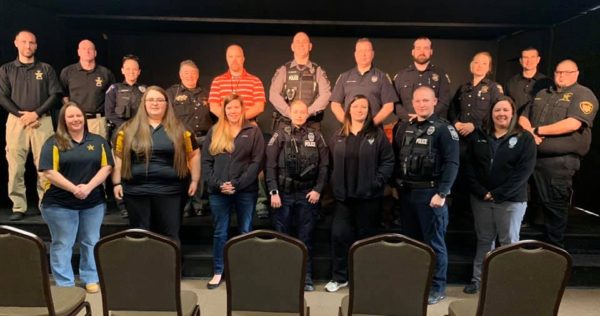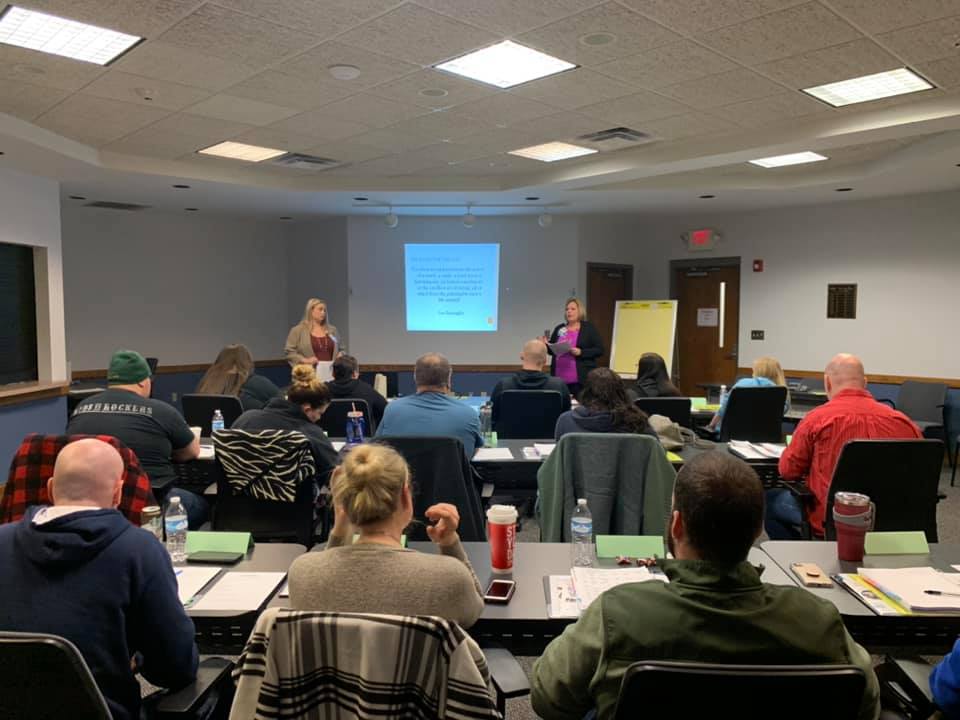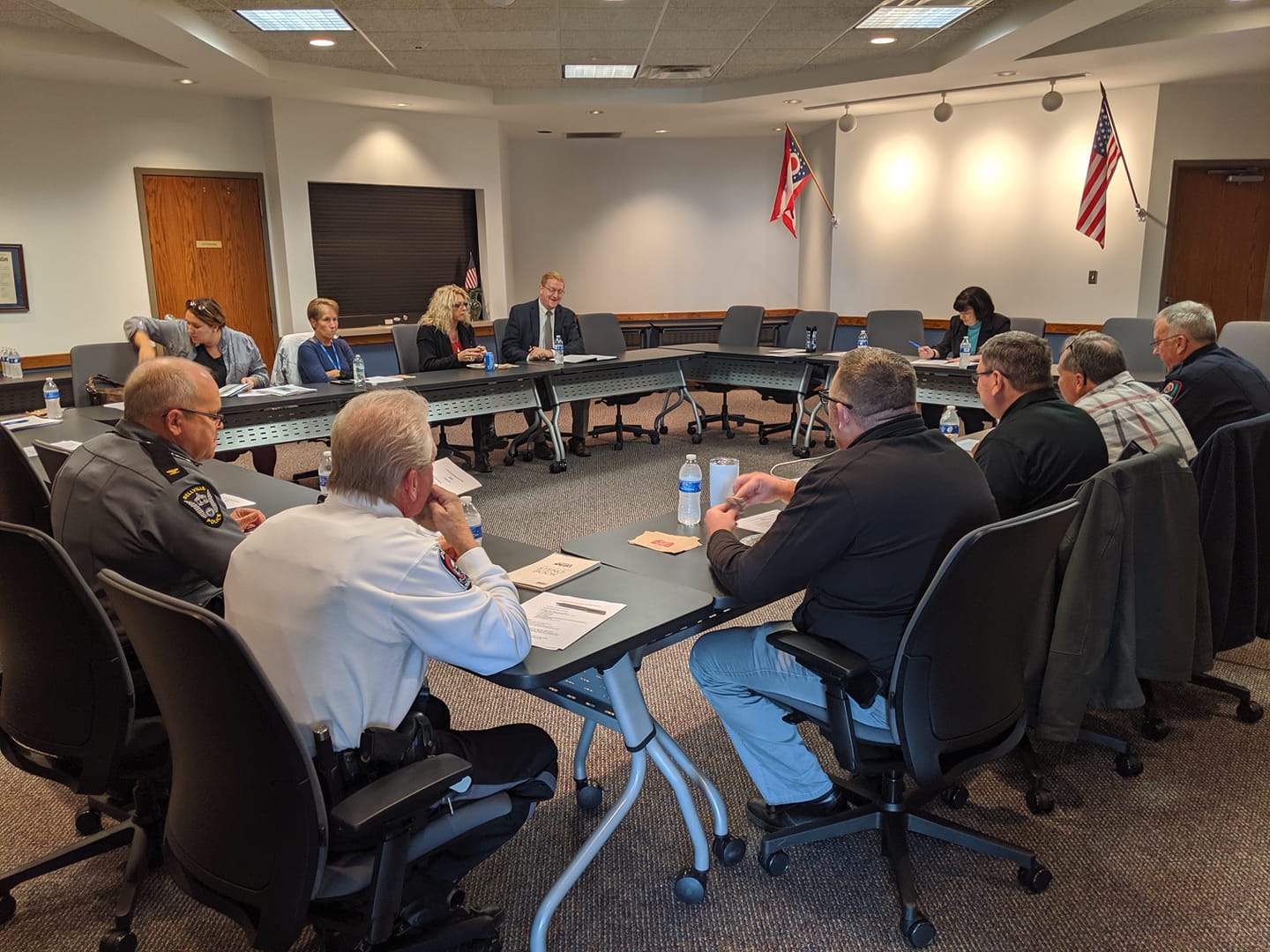
CIT training refers to a collaborative effort between law enforcement and the mental health community to help law enforcement officers handle incidents involving persons suffering with mental illness. It focuses on the need for advanced training and specialization with patrol officers, immediacy of the crisis response, emphasis on officer and consumer safety, and proper referral for those in crisis.
This 40-hour training is comprised of many different speakers from different agencies. They teach first responders about brain illnesses, common symptoms and signs and deescalation strategies during a mental health crisis. Individuals taking the training are also made aware of all mental health resources in this and surrounding counties.
First responders also hear from a panel of individuals with lived experience as well as family members. Many of these individuals have had a police encounter of some sort due to their own or loved one’s mental illness. These perspectives help first responders to better understand mental illness and how to best access and act in certain crisis situations.
CIT has been shown to positively impact perceptions, decrease the need for higher levels of police intervention, decrease officer and consumer injuries, and re-direct those in crisis from the criminal justice system to the health care system. Although this training is offered country-wide, NAMI Richland County offers it twice a year through a collaboration with many local agencies and all local police departments.
Although there are many partners in the implementation of CIT, below you will hear from 3 partners including NAMI Richland County, the Richland County Sheriff’s Department and Catalyst Life Services.
NAMI Richland County

Q&A with Mary Kay Pierce,
Executive Director
NAMI Richland County
Q1: Why do you feel there is a need for CIT training?
We know that CIT training helps divert persons with mental health concerns whenever possible to mental health services instead of the jail. It educates the first responders with some new tools to deescalate a person in mental health crisis and connect them whenever possible to the mental health agencies in our community. It gives the first responders knowledge of all the resources available to offer to individuals and their families who are experiencing a crisis in mental health or addiction.
Q2: Have you seen a positive change since the implementation of this training?
Yes, I have seen many positive changes since the implementation of this training.
CIT has served as a springboard for a broader collaboration between criminal justice and mental health systems. I have seen an increase in communication and collaboration between all systems. Many more individuals are being taken to mental health agencies or the hospital to get the treatment they need. First responders are also connecting the support persons of individuals in crisis to the help they need.
Q3: What exactly is NAMI’s role in CIT?
NAMI Richland County plays a huge role in CIT in our community. NAMI began this training with the support of the Richland County Mental Health Board and our NAMI Board in 2004. We believe that CIT is more than a training we do twice a year. It is about relationships between first responders, mental health agencies and individuals and families living with mental health concerns. We work daily in our office to foster those relationships. We also meet with all the above three times a year to work on any concerns or needs of the community.
NAMI is also responsible for many of the details of the training including finding instructors for all the curriculum and reaching out to all first responders who would like to take CIT. We also work closely with our partners in the training which include Local Police Departments, Richland County Mental Health Board, Mansfield Playhouse, all the mental health agencies, first responders and individuals and families living with mental health concerns.
Q4: In a few sentences, how would you explain what CIT is and how it helps prepare first responders?
Crisis Intervention Team programs are local initiatives designed to improve the way law enforcement and the community respond to people experiencing mental health crisis. They are built on strong partnerships between law enforcement, mental health provider agencies and individuals and families affected by mental illness. It helps first responders recognize when they may be dealing with a mental health concern and teaches them tools to deescalate a person and get them safely to medical care and not the jail.
Richland County Sheriff’s Department

Q&A with Captain Chris Blunk,
Jail Administrator
Richland County Sheriff’s Department
Q1: Why do you think that CIT training is important?
CIT training gives law enforcement the skills and ability to not only recognize but safely attempt to de-escalate situations involving an individual in a mental health crisis where they are called to intervene by family members, neighbors of the person, or another third party. CIT training has changed the attitudes and responses of officers to people who are experiencing these types of crisis, better preparing officers to serve the community and interact with individuals with mental illness. I believe this has resulted in fewer arrests of people with mental illness, an increased understanding of mental illness, and an increased awareness of what to look for in people who might be in crisis.
Q2: How have you seen CIT benefit first responders?
In my experience at the jail, I have seen my staff, and ultimately the community benefit from officers that are trained in CIT. One example is an arrestee was brought into the jail on a minor misdemeanor charge and this person was difficult to interact with or even gain the necessary information to assess their well-being. The CIT officer recognized that this person was mentally ill and used his training to gather the information needed to properly care for this person during intake and throughout incarceration.
Q3: How would you explain the role of the Sheriff’s Department in a mental health crisis?
The Sheriff’s Office overall role in a mental health crisis is to engage, assess, and respond in a way that protects and serves the community.
- Engage- Law enforcement is usually the first to respond to a person in crisis and will ultimately engage the person in crisis.
- Assess- Upon engaging the person in crisis, assess the situation to provide for the safety and security of that person and others involved or in close proximity.
- Respond- Decision making/recognizing mental health crisis/de-escalation techniques/get them necessary help/etc.
Catalyst Life Services

Q&A with Erin Schaefer,
Executive Director
Catalyst Life Services
Q1: What is Catalyst’s role in CIT?
Catalyst assists NAMI and the RC Mental Health and recovery Services Board with training CIT officers and first responders on mental health issues and awareness. We also provide information about how to connect people to treatment. In addition, we sit on the CIT Advisory Committee to collaborate with police departments and community partners regarding how best to work together to serve the mentally ill in our county.
Q2: Why do you think CIT is needed? How has it helped?
CIT is definitely needed, as many of the most severely mentally ill are living in unstable conditions. Having first responders who are trained to understand signs and symptoms can prevent situations from escalating and from unnecessary uses of force or risk of harm to staff and people being helped.
Q3: Can you speak to any positive changes you have seen because of this training?
I have seen officers who approach someone who is paranoid with a gentle, reassuring voice instead of yelling commands, which could further increase agitation and hallucinations. I have seen first responders befriend those who can be very suspicious and paranoid with kindness and caring, and this in turn leads to better ongoing working relationships on the streets. When in distress, the mentally ill seek police or first responders as someone who can help instead of “the enemy” who is there to hurt them.
Q4: Can you speak to the collaboration of Catalyst and the police departments?
The police call into Helpline or contact me directly if there is someone in the community about whom they are concerned. They let us know if someone is not rising to their level of risk of harm to self or others, but it is someone they think we should know about in order to try to engage that person in treatment or to check on that person if he/she is currently in treatment. Likewise, we contact the police immediately if we have someone who needs immediate assistance because of concerns about that person’s safety. We partner with the police frequently, and we could not do our jobs without them! We are grateful for the collaboration.


